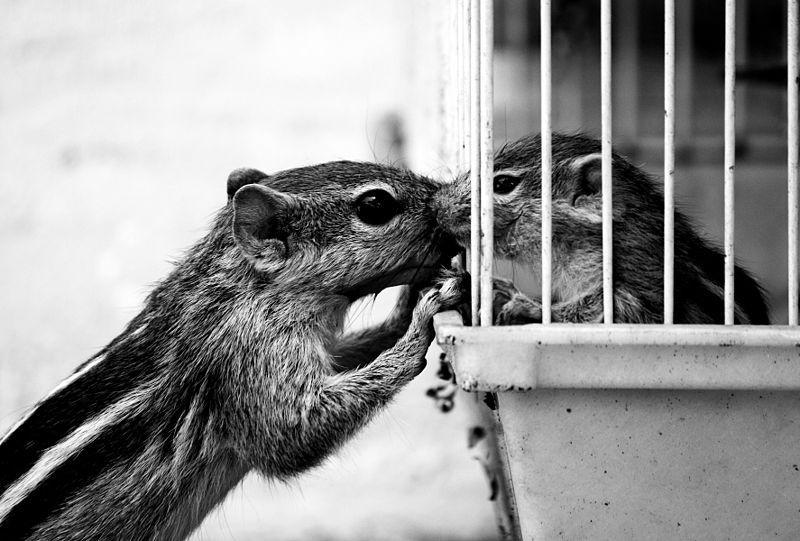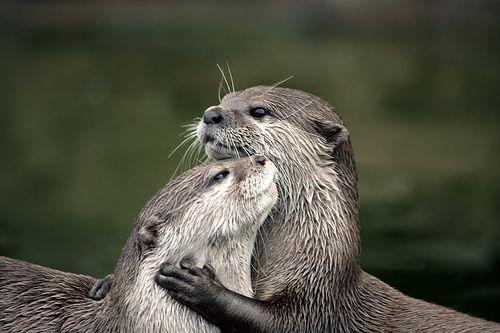- Tags:
- Wildlife,
- Something Wild

Scientists who suggested that animals might experience thoughts or emotions were accused of "anthropomorphizing" and were ridiculed by peers. (Photo: Anton Croos via Wikimedia Commons)
If Valentine's Day alone were not a slippery slope, consider this question: Muskrat Love?
Science long taught its practitioners--biologists in particular--to avoid ascribing human emotions or attributes to animals. But are we not animals ourselves? For the past century, animals were afforded no emotions despite exhibitions of behaviors humans recognize as emotional: anger, revenge, fear, and love.
Animals were relegated to mere stimulus by scientists--response machines conditioned to act a specific way in specific situation. Scientists who suggested that animals might experience thoughts or emotions were accused of "anthropomorphizing" and were ridiculed by peers. Researchers were constrained to note how animals exhibited conditioned responses: salivating at the sound of a bell.

The scales have begin to tip and consensus now says some animals experience emotions, yet skeptics remain. This red rose has two thorns.
Proponents for animal emotions say we share common neuro-chemicals, including serotonin and testosterone. Our brain structures are hard-wired the same way. Brain chemicals and emotions evolved out of social necessity, helping all animals to adapt to social situations.
Yet scientists don't agree about the range of emotional versus instinctive responses. the emerging picture suggests a sliding scale for which animals experience which emotions. Dolphins, chimps, and crows play (below), appearing happy when they do. Elephants, monkeys and wolves grieve the death of mates and offspring we would call loved ones.
